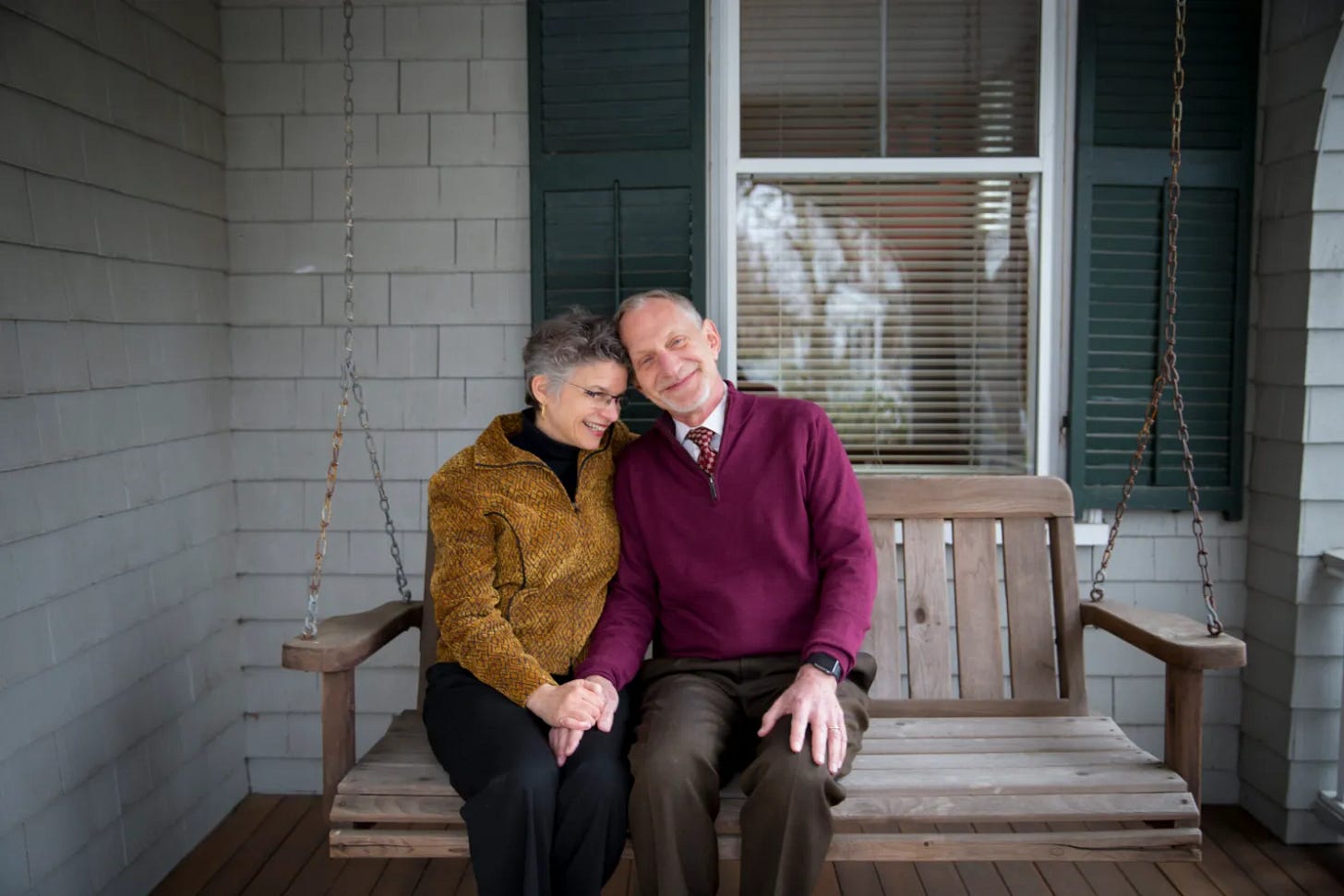Neuro Athletics is a twice-weekly newsletter designed specifically for high-performing men and women who want science-backed strategies to optimize brain health, performance, and longevity. Subscribers include executives, coaches, professional women, health-conscious mothers, and women dedicated to peak cognitive and physical performance. If you're not already subscribed, join 69,000+ people who receive actionable insights directly in their inbox each week.
Story at a Glance:
The Harvard Study of Adult Development reveals that quality social relationships are the strongest predictors of happiness and longevity.
Loneliness has severe physiological impacts, equivalent to smoking 15 cigarettes per day, increasing chronic inflammation, stress hormones, and cardiovascular risks.
Intentional strategies such as cultivating deeper relationships, community engagement, and emotional intelligence are key to improving health and extending lifespan.
Neuro Athletes,
Loneliness is emerging as the next major public health crisis, with lonely individuals facing up to a 30 percent higher risk of heart disease. Additionally, loneliness places people at greater risk for dementia, stroke, depression, anxiety, and even premature death. This compelling connection has always intrigued both myself and the academic community, prompting deeper exploration into its roots.
This interest brings us to 1938, when researchers at Harvard University posed a profound question: what truly contributes to happiness and longevity? Their groundbreaking inquiry led to the Harvard Study of Adult Development—the longest-running research endeavor on happiness, health, and longevity.
Tracking hundreds of individuals over more than 80 years, this study has produced remarkably clear findings: strong, meaningful social connections significantly enhance overall health and lifespan, underscoring the critical role relationships play in combating loneliness and promoting well-being.
The key determinant of happiness and longevity is the quality of our social relationships.
In this article, I'll explore the science behind this claim, addressing key questions:
What exactly does the Harvard study reveal about relationships and longevity?
Why are social connections so critical to our long-term health?
How does loneliness physiologically impact our bodies?
What actionable steps can we take to improve our social bonds?
Where is the research on social health headed?
Unlock Ultimate Nutrition with Timeline Nutrition
Worried about muscle strength and cellular energy declining with age?
If you value scientifically backed supplements, you'll love Mitopure® Gummies. They're the first and only clinically proven gummies featuring Urolithin A, a powerful compound that boosts cellular energy and muscle strength at the mitochondrial level.
Clinically shown to improve muscle strength by 12% in just 16 weeks, these sugar-free, vegan gummies offer targeted cellular renewal, delivering 6X more Urolithin A than you'd get from pomegranate juice. Enhanced muscle function means better performance, recovery, and overall physical vitality.
Elevate your skincare routine with Mitopure® and start your journey to healthier, more youthful skin today.
1. What Does the Harvard Study Reveal About Relationships and Longevity?
Directed by psychiatrist Dr. Robert Waldinger, the Harvard Study of Adult Development has consistently shown that good, close relationships are the most critical element influencing happiness and longevity.
The findings emphasize that it's not the quantity of relationships but their quality that matters. People who cultivated strong, supportive relationships throughout their lives were notably happier, healthier, and lived significantly longer than those without such bonds.
Participants who reported high satisfaction in their relationships at age 50 were the healthiest at age 80. Remarkably, the single strongest predictor of a long life was not wealth, fame, or career success—it was the presence of deep and fulfilling personal connections.
2. Why Are Social Connections Critical to Our Long-Term Health?
Good relationships protect our brains and bodies. People with strong social bonds experienced:
Enhanced Cognitive Function: Reduced rates of memory decline and dementia.
Lower Stress Levels: Better management of life's hardships and less chronic stress.
Improved Cardiovascular Health: Lower risk of heart disease, hypertension, and stroke.
The emotional and psychological support provided by meaningful relationships is protective, helping individuals cope better with life's inevitable stressors and crises.
3. How Does Loneliness Physiologically Impact Our Bodies?
The Harvard study—and additional supporting research—highlights a stark contrast: loneliness isn't just emotionally painful; it’s physically harmful. Research equates chronic loneliness to the health impact of smoking 15 cigarettes per day.
Physiologically, loneliness triggers:
Elevated inflammation levels: Increasing risks for chronic diseases like heart disease, arthritis, and diabetes.
Higher cortisol levels: Disrupting sleep, weakening the immune system, and impairing cognitive performance.
Increased blood pressure: Contributing to hypertension and cardiovascular strain.
Loneliness literally accelerates aging and can cut life expectancy significantly, underscoring the vital importance of nurturing social bonds.
4. What Actionable Steps Can Improve Social Bonds?
Like any critical aspect of health, relationships require intentional effort. Here are evidence-based strategies to enhance your social connections:
Prioritize Quality over Quantity: Focus on cultivating fewer, deeper relationships rather than many superficial ones.
Develop Relationship Skills: Active listening, empathetic communication, and meaningful interactions significantly enhance relationship quality.
Foster Community Engagement: Regular participation in community activities, volunteering, or group engagements contributes significantly to feelings of belonging and happiness.
Build Emotional Intelligence: Improving personal self-awareness, emotional regulation, and social skills directly enhances relationship success.
Practice Forgiveness: Letting go of resentments and practicing forgiveness strengthens emotional bonds and personal resilience.
Research consistently demonstrates that these practices contribute directly to better physical health, greater happiness, and extended lifespan.

5. Where is the Research on Social Health Headed?
The focus on social relationships and health continues to expand. Researchers are investigating the physiological mechanisms linking relationship quality to cellular aging, inflammation reduction, and cognitive preservation.
Exciting areas of ongoing research include:
Genetic and Epigenetic Impacts: How social bonds influence gene expression related to aging and longevity.
Digital vs. In-Person Interaction: Exploring how virtual connections compare with in-person interactions in promoting emotional and physiological health.
Loneliness Interventions: Developing targeted therapies and community programs to mitigate the epidemic of loneliness, particularly among older adults.
The future of this research aims not just to understand relationships better but to actively implement social health strategies into public health initiatives globally.
In closing, the landmark Harvard Study of Adult Development sends a clear, powerful message: human beings thrive on meaningful connections. In our quest for health, happiness, and longevity, nurturing quality relationships isn’t just beneficial—it’s essential.
These revelations not only redefine our understanding of happiness but also offer a unique perspective on enhancing our healthspan. By focusing on building a life enriched with enjoyment, satisfaction, and meaning, we are not just chasing fleeting moments of happiness but cultivating a deeper, more sustained state of well-being. This holistic approach to happiness could be the key to not only living longer but living better and healthier.
As science continues to unfold the profound impacts of our social bonds, it's time we recognize relationships not merely as a facet of life, but as the very foundation of it.
A Quick Poll
If you enjoyed this and want to explore the topic further, please listen to the podcast episode I did that goes through all of the available evidence linking relationships to longevity.
I’m also appreciative for your reading and subscribing to Neuro Athletics
If you found this interesting PLEASE share it!
That makes the work involved in putting these together especially worthwhile.















Share this post